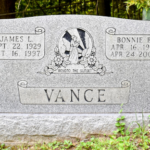Blog Post
Can nationalism save conservatism?
By Jonathon Van Maren
My first breakdown of the National Conservatism conference can be found here.
My summary of Tucker Carlson’s keynote speech can be found here.
The second half of day one of the National Conservatism conference was a bit of a blur. At 2 PM, I attended the Breakout on “International Institutions versus National Independence,” featuring Ryszard Legutko, the co-chairman of European Conservatives and Reformists, the head of the Polish Law and Justice Delegation to the European Parliament, and the author of The Demon in Democracy; John Fonte, director of the Center for American Common Culture and the author of Sovereignty or Submission; Daniel Pipes, author of sixteen books and a member of the Policy Planning Council under Ronald Reagan; and John O’Sullivan, an editor-at-large of National Review and former executive editor of Radio Free Europe. Leguko addressed “Nationalism, Conservatism, and the EU,” Fonte discussed “American Transnationalism,” Pipes highlighted “How Immigration and Islamization Build Nationalism in Europe” and O’Sullivan spoke on “Euro-Nationalism.”
The panel was optimistic about nationalism in Europe. Legutko, being a European, was the most circumspect, and noted that the term nationalism itself was still something of a bad word in the Old World. Daniel Pipes was bullish, stating that he believed that Mark Steyn’s America Alone was wrong—the future of Europe would not be Islamic. Europeans would push back, and the beginning of that resistance is beginning to manifest itself. British journalist Douglas Murray got a shout-out as one of those doing heavy lifting in the creation of a new European nationalism (his most recent book The Strange Death of Europe is not nearly as optimistic.) Most of the speakers seemed to agree that despite the myriad challenges, the international outlook was not bad, not bad at all. Even the British Tories, noted O’Sullivan, will in all likelihood be forced by pressure from the Brexit Party on their right flank to get with the program and facilitate a hard exit from the European Union.
The second panel discussion, on “American National Conservatism,” began at 4 PM. Andre Archie, a professor in Ancient Greek philosophy from Colorado State University, Amity Shlaes, the author of several acclaimed biographies of Calvin Coolidge, Rich Lowry of the National Review and Daniel McCarthy of The American Conservative took the stage. Archie pointed out that those who desire to become citizens of the world inevitably become citizens of nowhere. We need national narratives, he told the audience. Humans need to belong to something outside of themselves, and identity politics tears nations apart. Shlaes followed him with an interesting historical lecture (that felt oddly out of place) on Calvin Coolidge and his “Things of the Spirit” brand of nationalism, ranging from the terseness due to his famous Asperger’s to his valiant fight against progressivism. One powerful example she provided of how Coolidge would show his fidelity to the first things was by refusing to give a speech on Sunday. Americans once recognized the Sabbath as the Lord’s Day.
McCarthy was the first to propose anything mildly controversial, posing the argument that Donald Trump’s conservatism—assuming there is such a thing—more closely resembles what we’ve seen throughout American history than the classical liberalism version we’ve seen over the past few decades. Lowry began with a hilarious anecdote. Recently, he’d written a column for the New York Post, which the editors had given the title “There is only Trump.” Soon afterwards, Lowry received a brown envelope from the White House. Upon opening, he discovered the column torn out of the newspaper, the content disregarded, a circle around the title, and a comment written in bold: Rich—so true. Donald J. Trump. The story sparked roars of laughter from the audience.
Lowry had a bone to pick with the idea that America is an idea. Nobody, he pointed out, lives in an abstraction, and it is absurd to say so. One of the reasons America had a common culture because they all had a King James Bible on their bedside, and a different book would have made a different nation. Our symbols, our traditions, our flag—these things are essential, and they are commonly shared. (It is presumably for this reason that so many people get worked up by the infantile displays of millionaire pro-athletes.) One of the key cultural things we need to address, he said, is that the American story must be told as a glorious narrative rather than a sordid tale of oppression and murder, as is so prevalent in universities. Immigrants need to assimilate and learn English (here he took a shot at Canada, calling official bilingualism “a disaster.) He then paused to give the requisite and ubiquitous condemnation of white nationalism, and highlighted the African-American literary tradition and its importance to American nationalism. On that note, Lowry concluded, we should also push back when Trump stokes division, which was presumably a reference to the president’s recent tweets.
The day ended with a formal debate between Oren Cass and Richard Reinsch on the resolution “America Should Adopt an Industrial Policy.” Reinsch was arguing against, from the mainstream free market conservative perspective, and Cass was arguing for the resolution, which is precisely the sort of thing that this sort of conference wants to create a buzz about to begin pushing as a new political agenda and a new conservatism. Cass pointed out that market economies often do not deliver the distribution necessary for a healthy society, and that we have the levers at our disposal to create an industrial policy to correct his. The wealth, he stated, is piling up amongst the elites while the middle class collapses. Men need good employment, so these jobs matter. We should recognize, he said to cheers, that someone with a degree in engineering has a more valuable job than whatever it is that someone with a degree in comparative literature does (not totally fair, as I know some great lit profs). We should have a vocational educational system, trade enforcement to prioritize America’s workers, and we should tax industries that don’t employ domestic workers at higher rates.
Reinsch was against all this: “I thought we were conservative!” He gave a very well-put together, stats-heavy rebuttal, based on the philosophical basis that “work and its fruit are not a privilege granted by the state.” These manufacturing jobs, he said, are never coming back, and thus an industrial policy will make us poorer while the government grows larger. Many conservatives come to Washington to drain the swamp, he joked, only to find that it is a nice hot tub. He proposed that more creative solutions to things such as the opioid crisis (like regulation of the pharmaceutical industry) be explored. In short, Reinsch rejected the idea both philosophically and practically.
The audience was having none of it, and although his argument was both articulate and eloquent, he never really had a chance. When audience members had the opportunity to stand up and speak for or against the motion, J.D. Vance (author of Hillbilly Elegy) stood up to speak for the motion to cheers from the crowd. The key point of those supporting the motion was simple: Some industries have more social value in terms of supporting communities than others do, and an industrial policy should favor those. The resolution passed (to the obvious delight of the chair) 99-51.








